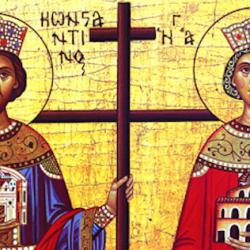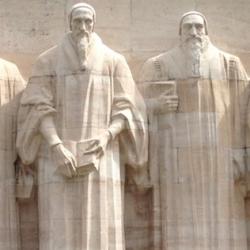John P. Burgess of Pittsburgh Theological Seminary spent a year with his family in Russia and recounts the experience of Russian Orthodoxy in his 2013 Encounters with Orthodoxy.
It’s a very personal, sympathetic account. He describes Orthodox practices, and also some theology, in a way that I suspect an Orthodox reader could recognize, and he dispassionately compares Orthodoxy to American Protestantism. He finds many attractions in Orthodoxy, he thinks that Protestants have a lot to learn from Orthodox about ritual, beauty, Eucharist, and holiness, and he even concludes that it is a “fuller expression of the Christian faith than Protestantism” (181).
Yet he is open about his Protestant objections and scruples, and he doesn’t seem likely to “convert.” Burgess’s encounter with Orthodoxy didn’t make him Orthodox, but he admits that he’s not quite Presbyterian anymore either.
I suspect, though, that he smoothed his way a good bit by the categories he uses to describe Orthodoxy, especially the category of “holiness.” He distinguishes between moments of experience of transcendence (watching a sunrise from a mountain) and an encounter with the holiness of God.
“When I stood in an Orthodox church,” he writes, “the holy seemed not something set apart from the rest of life, but rather something that illuminated it. Holiness was not only a personal experience of the transcendent but also a communal element of worship” (42). He sees this in contrast to the Protestant temptation to “empty the world of divine holiness, making Christianity a matter of divinely sanctioned moral causes for justice and peace” (43). Throughout the book, he recounts how Orthodoxy is infused with holy things, holy spaces, holy actions.
But I don’t think that the difference between Orthodox and Protestant at this point is a difference between a world charged with God’s glory and one that is emptied of holiness. I suspect rather that we are looking at different conceptions of holiness. Burgess seems to adopt from the very beginning an understanding of holiness that predisposes him to respond to the attractions of Orthodoxy.











